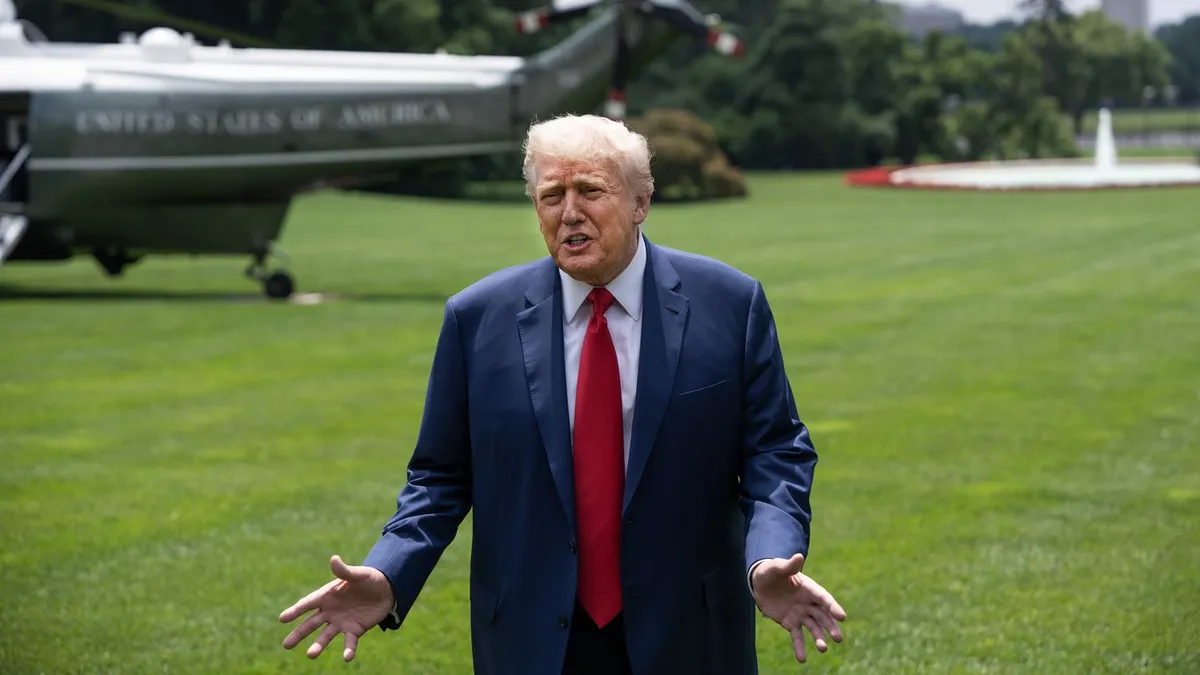
Minutes before heading to the Situation Room for a crucial strategy session focused on Iran, President Donald Trump shared his insights with Axios. He expressed a belief that Israel's recent massive military strike could potentially enhance the likelihood of reaching a U.S.-Iran nuclear agreement. This significant development comes at a time when tensions in the region are high, following Israel's targeted actions against Iranian military leaders and nuclear scientists.
In what can be described as a sweeping military operation, Israel has successfully eliminated a large portion of Iran's military leadership and has actively engaged in bombing critical nuclear facilities and ballistic missile sites within the Islamic Republic. Iranian officials have openly declared their stance, blaming both the U.S. and Israel for the attacks. In response, the United States is taking precautionary measures to defend against potential retaliatory actions from Iran targeting U.S. interests.
Despite the escalating conflict, White House envoy Steve Witkoff has expressed a desire to meet with Iran's Foreign Minister Abbas Araghchi for a planned sixth round of nuclear talks on Sunday. However, Iranian authorities have indicated that they will not participate in these discussions, highlighting the tense atmosphere surrounding nuclear diplomacy. President Trump aims to leverage Israel's military actions to bring the Iranians back to the negotiating table, albeit from a potentially weakened position.
When asked by Axios whether Israel's military strike jeopardized his nuclear diplomacy efforts, Trump confidently stated, "I don't think so. Maybe the opposite. Maybe now they will negotiate seriously." He highlighted the fact that he had previously given Iran 60 days to reach an agreement, emphasizing that today marks day 61. Trump argued that after Israel's crippling strikes, Iran may now possess a stronger incentive to negotiate a deal.
In the wake of the attacks, Trump had a conversation with Israeli Prime Minister Benjamin Netanyahu for the first time since the military action. Although Trump declined to share specific details of their discussion, he refrained from commenting on whether Netanyahu sought U.S. involvement in the operation. Netanyahu revealed that he and his top adviser, Ron Dermer, had conducted multiple calls and meetings with Trump's team to secure tacit approval for the strike, indicating that the U.S. administration was aware of the attack plan beforehand.
Netanyahu emphasized the necessity of preventing Iran from acquiring a nuclear weapon, stating, "I leave it to President Trump." However, it is worth noting that just hours prior to the military action, Trump cautioned Israel against taking steps that could jeopardize the chances for a diplomatic agreement. Following the strike, Israeli officials communicated that Trump was fully supportive of their actions, suggesting that his public opposition was merely a guise to enhance the operation's success.
As the situation unfolds, a senior White House official has clarified that the U.S. does not currently plan to engage in military action against Iran or to participate in the Israeli operation. Observers are keeping a close eye on Israel's military capabilities, as they need to destroy an underground nuclear facility located in Fordow, which is fortified within a mountain. Israeli officials have expressed hope that the U.S. may join efforts to neutralize this critical site, as they currently lack the necessary bunker-busting munitions to effectively carry out the operation.